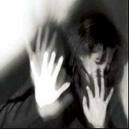Three generations of women, some of whom had been to the first march, some of whom had been children or not born yet, came together to call for "an end to violence, discrimination, the devaluation of housework, and the non-representation of women in politics" and to make both women and domestic violence a visible issue.
Several famous women artists took to the stage, and the demonstrators also sang two women's songs in unison.
There were stands of NGOs, such as the internet magazine "Feminist Approaches", the gay, lesbian, bisexual and transgender support association Lamdaistanbul, the women's "Monday" magazine, the women's shelter and support group Purple Roof, the women's cinema cooperative Filmmor, and the Project for Legal Support against Abuse and Rape.
Women united
In the "Women's March against Violence", women united against "violence, discrimination, abuse and inequality". Senay, one of the demonstrators, said she was demonstrating "so that politicians don't forget women". She said that the women's movement was stronger in the 1980s than today. Her daughter Burcu had joined "so that inequality ends". Merve, a volunteer for the Purple Roof, was worried that "there is a pretence of freedom for women. Women are shown as free and then they are restricted". She spoke of "fake freedom".
Handan Coskun, who had joined the demonstration 20 years ago, said that "the women's movement is more important than any other movement", Stella Ovadia said "women today know that the prince on the white horse is of no use". Gülnur Acar Savran commented that "women have realized that violence comes from patriarchy".
Uneducated women face more oppression
"Housewife" Filiz, who had come to Macka Park unaware of the demonstration, said that "Women should not be oppressed. Uneducated women face a lot of pressure. Women need to stand up for themselves".
Her daughter Gizem and her friend Fatma had come to the park to watch one of the female singers, rap artist Ayben. When Ayben demanded in a song that women should be able to walk the streets freely, they shyly said that they had enjoyed the song.
Female intellectuals evaluate Turkey's women's movement
In a series of articles published last week in an anniversary issue by the "Campaign against Domestic Violence", prominent women commented on the women's movement in Turkey.
Academic Gülser Öztunali Kayir remembers the first women's meetings she joined. She was so impressed by the other women, that she was inspired to enter the university exam in her thirties and become an academic. The women decided to face the prejudices that "feminists" faced in Turkey head on, and called their first magazine "Feminist". She says that women have come a long way, but that there is still much to do.
Gülnur Acar Savran evaluates the "Women's Solidarity Against Domestic Violence" Campaign. She says that for the first time, male violence was not excused by lack of education, alcohol, or economic problems, but it was shown that it was a systematic attempt to keep women under control. The feminist campaigns and meetings brought women from all walks of life together. She writes that the women's movement still needs to be listened to.
Academic Nükhet Sirman emphasizes that male hegemony always changes its approach, and that women need to keep thinking in order to understand these changes.
Yaprak Zihnioglu reminds us that the women's demonstration 20 years ago was the first street protest after the repressive military regime of the early 1980s. She remembers the excitement of seeing women streaming to the meeting place, and of women bystanders applauding them.
Researcher Aksu Bora remembers the foundation of the women's shelter Purple Roof. She says that today we understand male violence towards women better, but that it still has to be acknowledged as a political problem.
Filiz Kerestecioglu, whose song "There are women" has become a highly symbolic song for the women's movement, says that it stands for the refusal to be silent anymore. The women's movement has forced acknowledgement of "domestic labour" and "rape in marriage", but she also worries that there are not enough women's shelters and that violence is not questioned sufficiently. (AÖ/EÜ/GÖK/GAS/YZ/AB/FK/BA/AG/EÜ)












